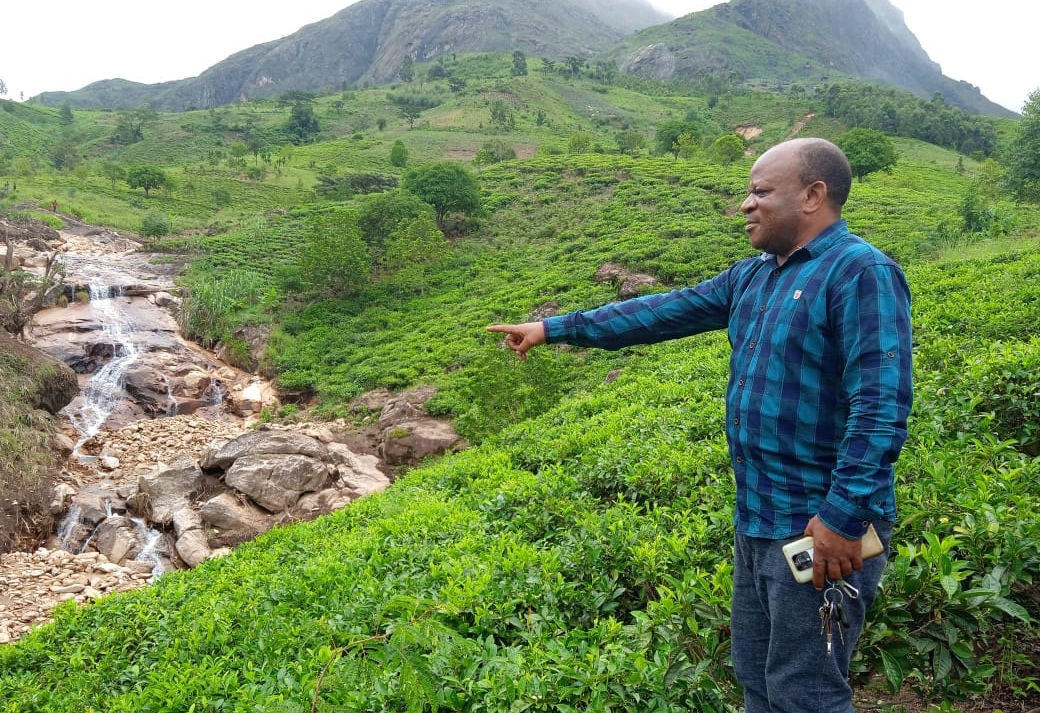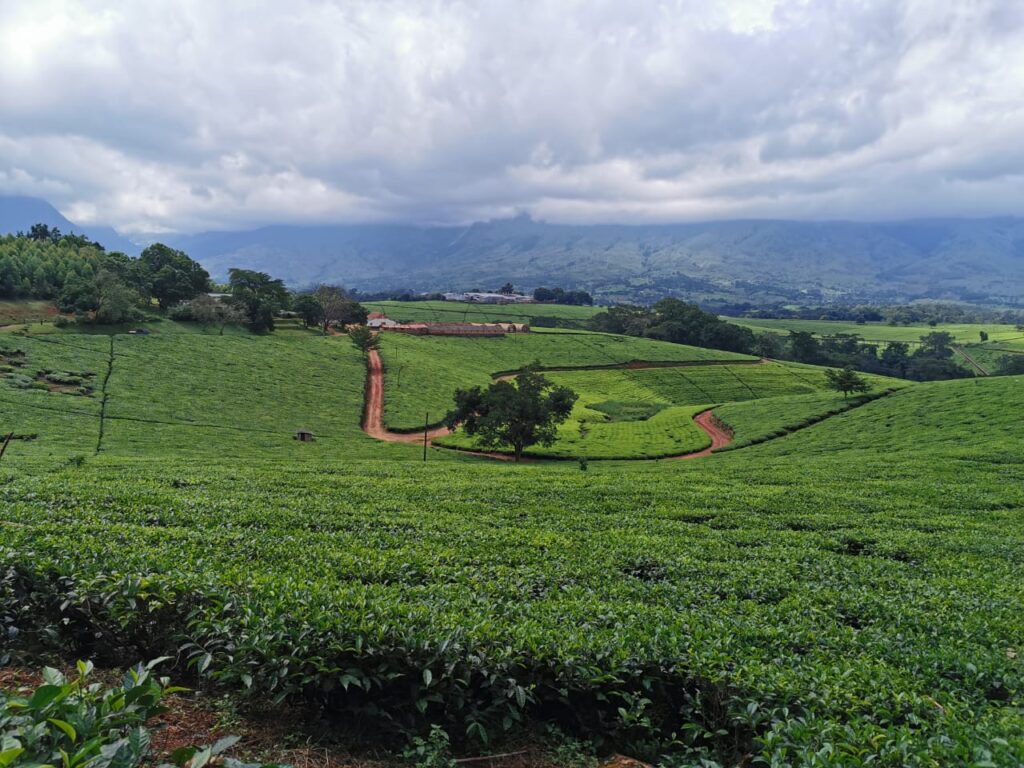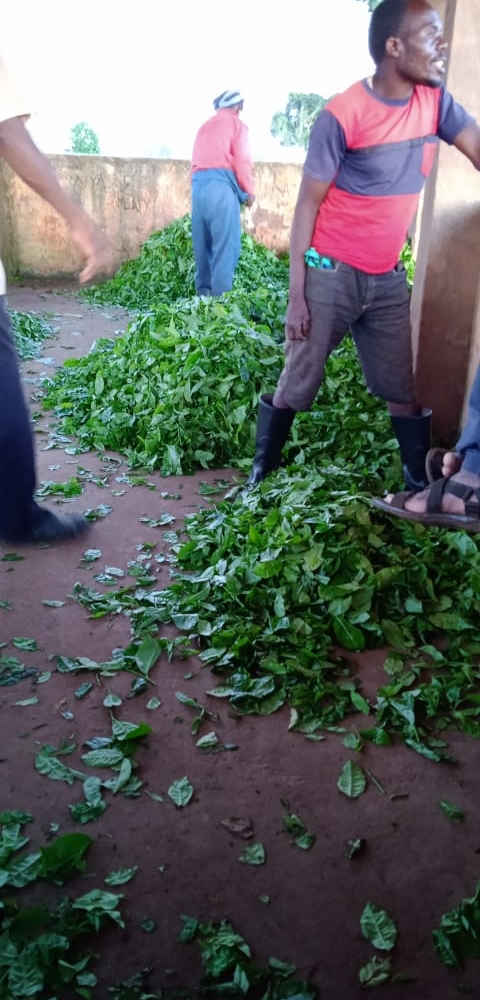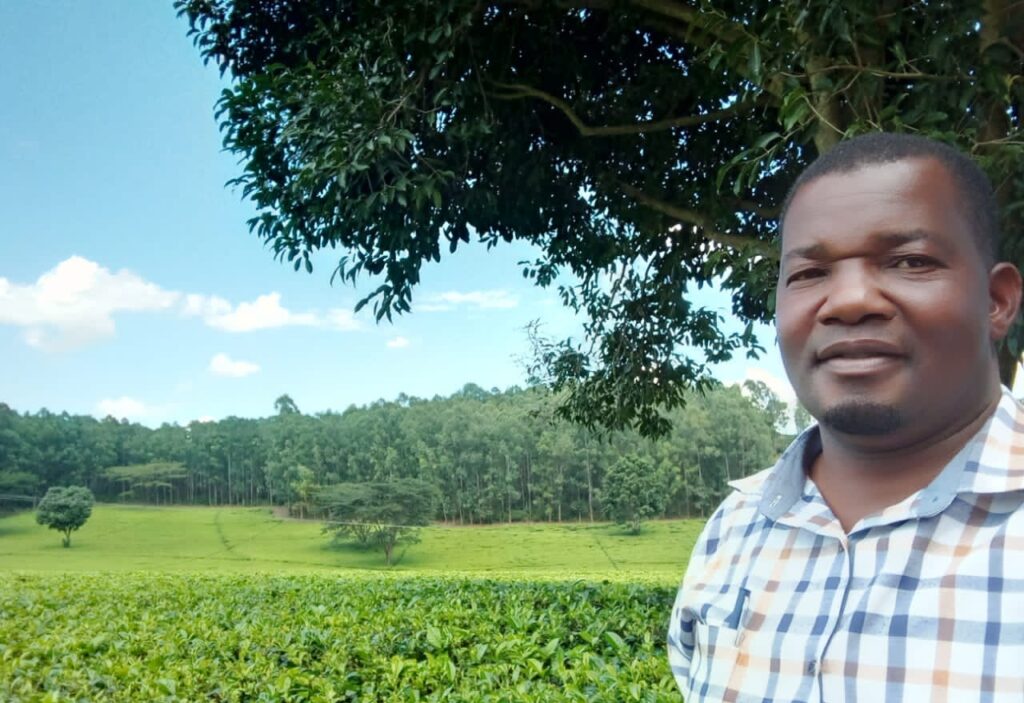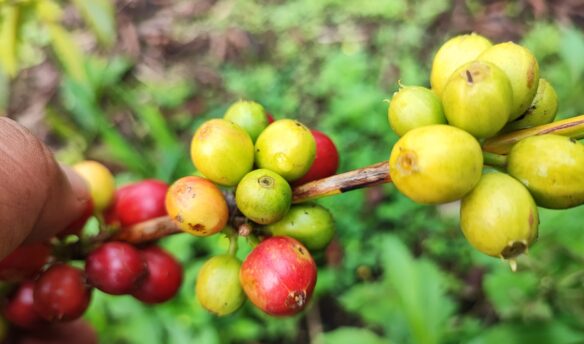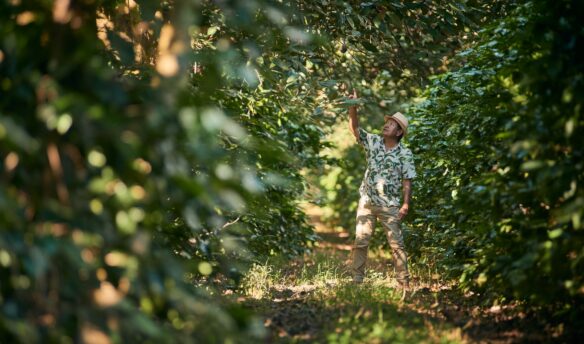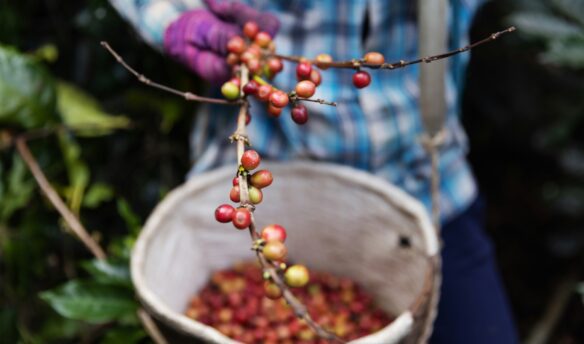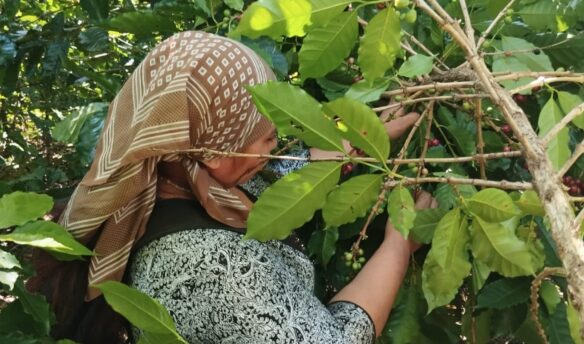Although many countries in Africa are known for their coffee production, tea is the most consumed beverage throughout the continent.
Malawi is the second-largest tea producer in Africa and is home to the oldest tea plantations on the continent. Research indicates that some of the tea plants in the country date back to 1890, and fans of Malawian tea say the age of the tea bushes contributes positively to the tea’s overall flavor. The plant’s maturity adds depth and richness to the cup— whether it be a traditional Malawian black tea, prized for its strong and earthy flavors, or a flowery and soft flavored white tea with sweet citrus notes.
Although Malawi has long been celebrated as a tea producer in Africa, many tea drinkers would be unable to describe what brands of tea originate from the country—or even what flavors are associated with these teas. But looking back on Malawi’s long history of tea production illuminates the region’s uniqueness and why smallholder farmers hold the key to its future.
A Look Back
Malawi exports approximately 31,000 tons of tea annually; more than 90% of the tea produced is black. The large-scale tea industry in Malawi—including companies like Satemwa Tea, Lujeri Tea, and Makandi Tea and Coffee Estates—employs about 50,000 formal workers, making it the biggest employer in a country of 19 million.
Although most of the tea labor force is employed in a formal setting by big commercial tea farming companies, small-scale farmers make up a tiny but significant portion of the tea industry. Formal tea workers in the country earn well above the minimum wage, but informal and small-scale farmers struggle to make a living solely from tea production, and most grow other crops to supplement their income.
However, small-scale farmers are vital to maintaining the diversity and uniqueness of Malawi tea. Even though the country primarily grows black tea, small-scale farmers produce a wider variety of teas, including herbal, white, and oolong teas. And that’s no minor feat: Malawi is a landlocked country with fluctuations in climate throughout the year, but despite these challenges, small-scale producers have successfully diversified their crops and created new markets for Malawi tea.
Different Resources, Different Outcomes
It’s clear that tea production is a big business for Malawi, but the challenges of producing tea look different for different stakeholders. As stated above, smallholder farmers make less money than their formally employed counterparts and struggle to get needed resources.
“Smallholders in Malawi produce about 10 percent of the country’s total tea,” says Prince Pendame, chairperson of the National Smallholder Tea Growers Association (NSTGA). “We have a number of challenges that uniquely affect smallholder farmers. First of all, the high cost of seedlings hinders the expansion of tea fields for farmers, and this challenge ties into low and stagnant prices of tea once harvested,” he says.
But perhaps the most glaring issue is that most smallholder farmers have to face high seedling prices and stagnant wages without any sort of government advocates.…[and] “The third challenge,” Pendame says, “is the lack of government intervention.”
Unlike other crops like cotton, the Malawi government provides little to no resources to smallholder tea producers. However, the lack of government intervention is not unique to smallholder farmers in the country. In 2015, the Food and Agriculture Organization of the United Nations (FAO) published an analysis of the economic lives of smallholder farmers, and lack of government intervention was listed as one challenge farmers faced in nine of the surveyed countries.
One way the Malawi government could intervene is through agricultural extensions. Agricultural extension services include technical advice on agronomy and supplying farmers with the necessary tools and services to support their agricultural production. According to the FAO report, large-scale producers have easier access to these extensions. “Information on access to extension services is scarce—only a few country household surveys include data on extension services,” it reads. “When available, data shows that smallholders have less access to extension services than larger farmers.”
Protecting The Diversity of Malawi Tea
In addition, Pendame mentioned that many smallholder farmers do not outsource labor, meaning their tea businesses rely on a limited workforce with specialized knowledge. This is why investing in smallholders is crucial: lack of investment will lead to them quitting tea farming for more stable sources of income which will, in turn, affect the diversity of tea production.
However, Pendame emphasized that there is a market for every farmer, and many of the challenges smallholder farmers face can be addressed through education and organizational efforts. In the past, smallholder tea farmers in Malawi have benefited from training opportunities hosted by local and international organizations, including The International Labor Organisation (ILO), The Tea Association of Malawi (TAML), and TrustAfrica. These classes aim to equip tea farmers with up-to-date knowledge of ethical labor practices and modern farming skills, helping them grow their farms.
In 2015, 22 organizations came together to form Malawi Tea 2020, a five-year revitalization program meant to improve the competitiveness and sustainability of the Malawi tea industry. Malawi Tea 2020 brought together organizations including producers, traders, buyers, retailers, trade unions, NGOs, and development partners. Their main goal, as outlined on their website, was to create a competitive and profitable Malawian tea industry that could sustainably improve income for workers and farmers so that they could maintain a decent standard of living for themselves and their families.
According to their final report, the organization reached a majority of small-scale farmers in Malawi through farmer field school and entrepreneurship and nutrition training. “Over the five years,” the report states, “the Malawi Tea 2020 programme had spurred greater investment in the tea sector, improved the industry’s economic outlook and workers’ well-being, bolstered the economic position of smallholder farmers, and taken the steps to mitigate the harmful impact of climate change.”
Small-scale farmers are bringing more diverse teas to the table in Malawi. Projects aiming to educate and support farmers are essential for the long-term sustainability of Malawi’s tea industry. Small-scale farmers supply local tea to consumers, aid families’ economic and food security across the country, and help preserve what makes Malawi tea unique.
Photos courtesy of Prince Pendame
Fiske Nyirongo is a Zambian writer based in Lusaka, Zambia. Her favorite activities are hanging out in cafe corners and discovering new things about her ancestral roots. She was a 2020 PenPen African Writers Fellow.

